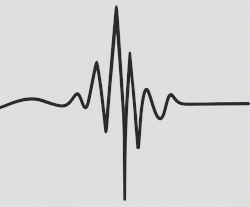749 CE Sabbatical Year Earthquake(s)







Michael the Syrian
wrote that “there was an earthquake at Damascus which
lasted for days and shook her like leaves on trees”.
Chronicon Ad Annum 1234
recorded a similar account: “there was an earthquake
at Damascus and in the whole surrounding area, which
lasted for days, and in which the area trembled and was
shaken.” Neither text provides reliable chronology, but
dates can be triangulated to January 749 CE from other authors who describe
these events (Williams, 2024).
Hoyland (2011:270–273) showed
that both authors may have derived this information from
the lost chronicle of
Theophilus of Edessa, perhaps through the intermediary
of the mostly lost chronicle of
Dionysius of Tell Mahre.
as-Suyuti compiled Arabic
accounts and recorded two earthquakes in Damascus around
this period. For the first event in
A.H. 130 (11 September 747 – 30 August 748 CE), he preserved
what may be eyewitness testimony transmitted through an
isnād-like tradition:
an earthquake struck Damascus, forcing its inhabitants to
flee the city, and “the Dajjāj suq [poultry market] fell from
the ‘Great Rocks.’” He added that rescue operations to dig
through the ruins did not begin until “several days after
the catastrophe,” implying strong aftershocks. In a second entry for
A.H. 131 (31 August 748 – 19 August 749 CE),
as-Suyuti wrote that “the platform of the mosque opened,
allowing the sky to be seen” at “the time of the catastrophic
earthquake of
A.H. 131,” after which another earthquake “closed the gap.” The
reference to the sky being seen may indicate that the
A.H. 131 (31 August 748 – 19 August 749 CE) earthquake
took place during the day.
Karcz (2004) notes that a dual
date tradition of
A.H. 130 and 131 for the
Sabbatical Year Quakes also exists in
the accounts of Arabic writers
Sibt ibn al-Jawzi and
Ibn Taghri Birdi. Thus,
as-Suyuti may have been
describing the same earthquake striking Damascus that, through
repetition and retelling, became duplicated in chronicles—or he
may have been referring to another shock or series of shocks in
A.H. 130 (11 September 747 – 30 August 748 CE) that were part of the
Sabbatical Quake sequence.

